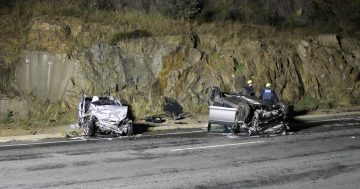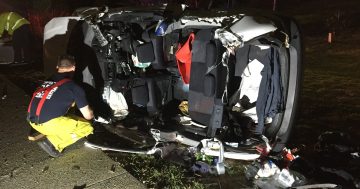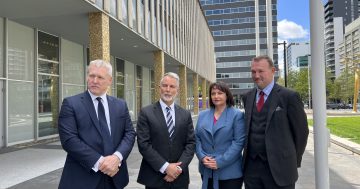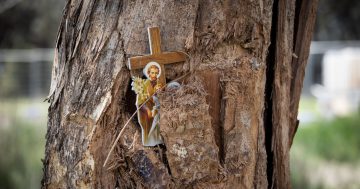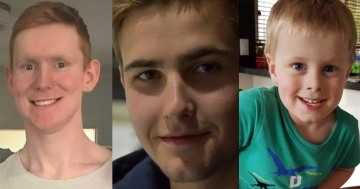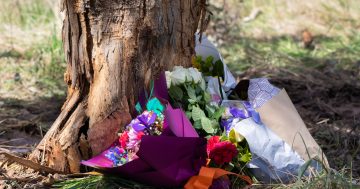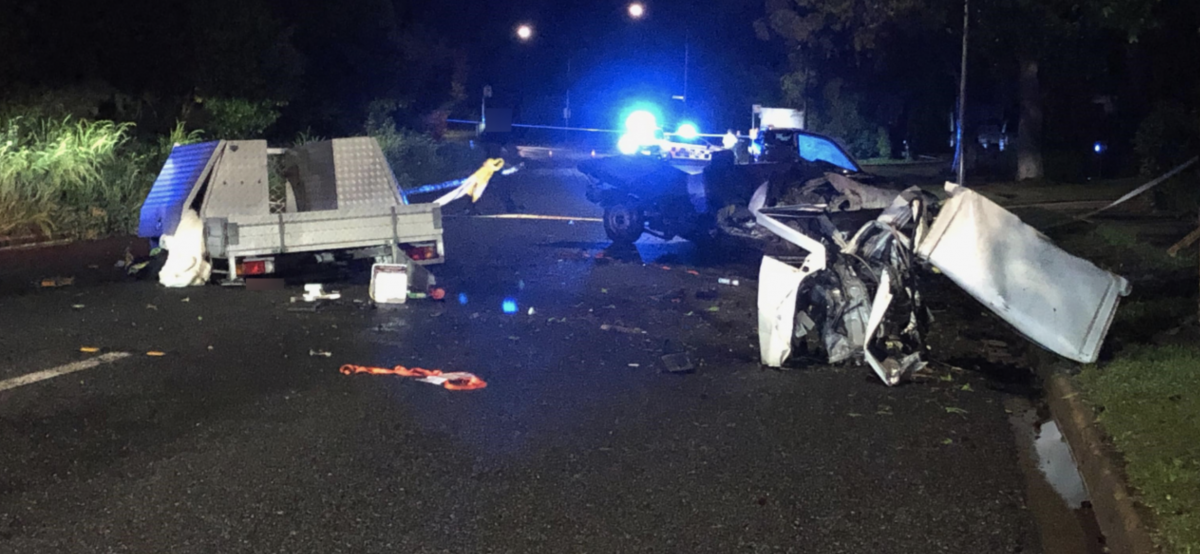
The most recent fatal crash occurred last weekend in Kaleen when the death of a 24-year-old man brought the Territory’s road toll to 18. Photo: ACT Policing.
It’s not even the end of October and this has already been a horror year on the Territory’s roads – now the deadliest since 2010.
So far, 18 people – including drivers, passengers, a motorbike rider, a cyclist, an e-scooter rider and a pedestrian – have lost their lives in road accidents.
It’s too early to say what the causes of many of those accidents were, with investigations still underway, but in the wake of each life lost, police have urged the community to slow down and drive to the (often wet) conditions.
These deaths have prompted emotional calls for change – as well as a review into sentencing and bail – and earlier this year, the Assembly announced it would inquire into dangerous driving.
The first public hearings will be held today (26 October). Here’s what’s about to happen.
What’s an inquiry?
Inquiries are carried out by ACT Legislative Assembly committees that conduct most of the work of the ACT Legislative Assembly.
These are made up of three members (one from each party); in this case, it will be chaired by Peter Cain (Canberra Liberals), with deputy chair Dr Marisa Paterson (Labor) and Andrew Braddock (Greens).
As the name suggests, it’s how they can delve into a topic and seek community views from a wide range of sources.
First, the committee announces it will look into something. Then it invites written submissions and holds public hearings.
The result is a report with recommendations for the government.
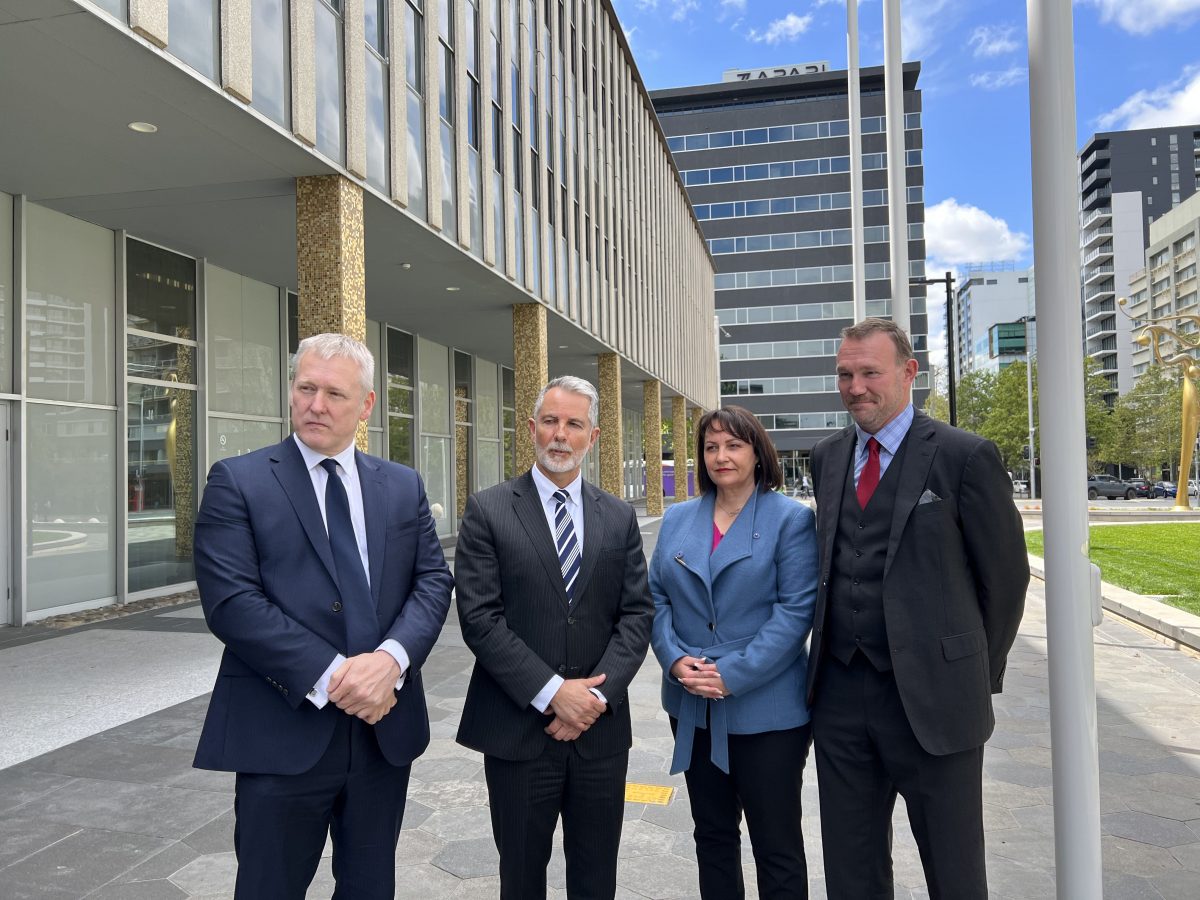
Blake Corney’s father Andrew, Opposition spokesperson for police Jeremy Hanson, Lachlan Seary’s mother Janice and Matthew McLuckie’s dad Tom have called on the government to review sentencing and bail outcomes. Photo: Lottie Twyford.
Why the dangerous driving topic?
This is a self-referred inquiry, which means the committee made the decision to do so of its own accord.
It did so following well-publicised advocacy from bereaved father Tom McLuckie. His son Matthew was the innocent victim of a collision in May.
Other grieving parents have since joined Mr McLuckie in his campaign.
What’s the inquiry specifically about?
It’s actually a pretty broad look at all things to do with dangerous driving.
It will look at the criminal justice, corrections and police response to dangerous driving, as well as the capacity of trauma services and support services to respond to the post-crash event.
It will look at the sentencing regime, prison sentences, fines and vehicle sanctions for dangerous driver offences and the support available for victims.
The effectiveness of rehabilitation and driver re-education at reducing recidivism and whether police can use technology to identify and prevent dangerous driving is also up for discussion.
It’s probably worth noting Transport Canberra has already been reviewing road transport offences since May following the handing down of the inquest into four-year-old Blake Corney’s death.
What is it not doing?
It’s not specifically doing what some advocates want – conducting an independent review of the judiciary or bail and sentencing outcomes.
The committee also won’t consider implementing mandatory minimum sentencing guidelines for motor vehicle crimes as outlined in one of Mr McLuckie’s petitions.
His three petitions (each with upwards of 2000 signatures) remain before the Assembly for consideration.
Attorney-General Shane Rattenbury has repeatedly pushed back against the need for a wholesale review in recent months.
What do police want from the inquiry?
Police have welcomed the chance to work to reduce road trauma and dangerous driving through the inquiry, saying in their submission an increase in drivers failing to stop for police and motor vehicle-related crime was being experienced.
Operation Toric has been launched in recent months to target recidivist offenders.
In many dangerous driving-related cases, police want tougher penalties.
Police have also said the courts have a role to play and would like to see changes to how bail is granted regarding offences like assaulting a police officer, driving at police, and recidivist serious motor vehicle offenders.
What about the community?
This is harder to say.
Some want more police on the roads. Others want the government to leave emotion out of the equation and focus on evidence instead.
Advocates like Mr McLuckie have previously expressed concerns about how long this inquiry will take before any real change happens.
In August, Mr McLuckie said lenient sentencing had long been an issue in Canberra and his son’s death had been an “accident waiting to happen”.
When will we see some results?
Once hearings conclude on 14 November, the committee will take its time to deliberate on the evidence it has heard and write its report.
The government then has four months to respond to that.











